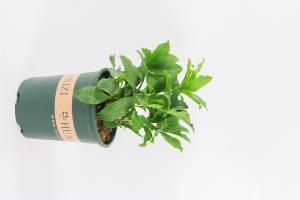Can Pool Water Damage Plants?
Most homeowners with a pool often worry about the effects of pool water on their gardens and plants. Pool water, especially if it has chemicals, can be harmful to plants, and it's essential to understand how to mitigate these risks. So, can pool water damage plants? Yes, it can, but let's delve into the specifics.
The Risks of Chlorinated Pool Water
The main concern when it comes to pool water and plants is the presence of chlorine. Although chlorine is essential for maintaining pool water hygiene, it can have adverse effects on plants. When chlorine comes in contact with plants, it can damage plant cells and cause them to wilt, turn brown, or even die. Over-chlorinated pool water is the most harmful to plants, so pool owners must ensure that the right amount of chlorine goes into their pools.
Pool Water and Soil pH Levels
The pH level of soil and water is crucial to the growth and wellbeing of plants. Ideally, the pH level of pool water should fall between 7.2 and 7.8 for healthy swimming conditions. When chlorinated pool water gets into the soil, it can alter the soil's pH levels, causing an imbalance and potentially damaging the plants. The soil pH is essential for nutrient uptake, and any changes can lead to poor plant growth, nutrient toxicity, or deficiency, among other issues.
Ways to Mitigate Damage to Plants
While pool water can be harmful to plants, pool owners can implement several measures to safeguard their gardens. One of the most effective ways is to avoid water splashing on the plants. Chlorinated water can easily damage plants if it comes into contact with the leaves or blossoms. Pool owners should also avoid draining pool water near plants or allowing runoff water to flow into the garden. Instead, they can channel it to the sewer or a drainage system outside the garden.
Another way to mitigate the impact of pool water on plants is to regularly test the pool water's chlorine levels. Test kits are readily available at pet stores, home centers, or pool supply stores. These kits are user-friendly and can give results within minutes, enabling pool owners to adjust their pools' chlorine levels before the water gets into contact with the plants. Additionally, pool owners can opt for alternative pool sanitization methods, such as saltwater systems, UV systems, or ozone systems, that are less harmful to plants, although they come with their pros and cons.
Conclusion
In summary, pool water can damage plants, especially if the water has high chlorine levels. Chlorinated water can alter the soil pH levels, slow down plant growth, or cause leaf burn or leaf wilt. However, with proper precautions and measures, pool owners can mitigate the damage to their gardens and plants. Regularly testing pool water chlorine levels and avoiding water splashing on plants are some of the ways to ensure that pool water does not harm plants. So, if you have a pool and a garden, you can have both with the right balance and care.

 how many times do yo...
how many times do yo... how many planted tre...
how many planted tre... how many pine trees ...
how many pine trees ... how many pecan trees...
how many pecan trees... how many plants comp...
how many plants comp... how many plants can ...
how many plants can ... how many plants and ...
how many plants and ... how many pepper plan...
how many pepper plan...































